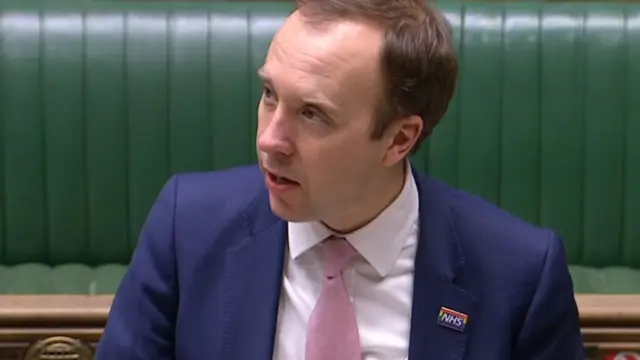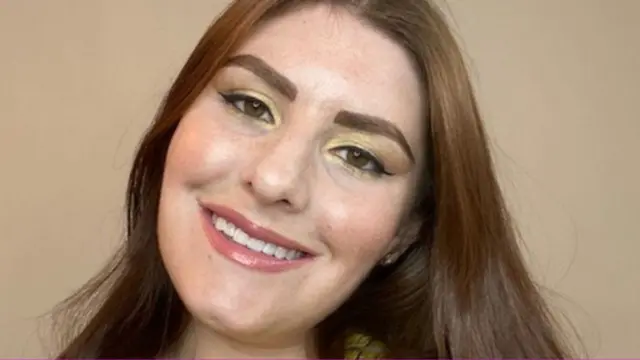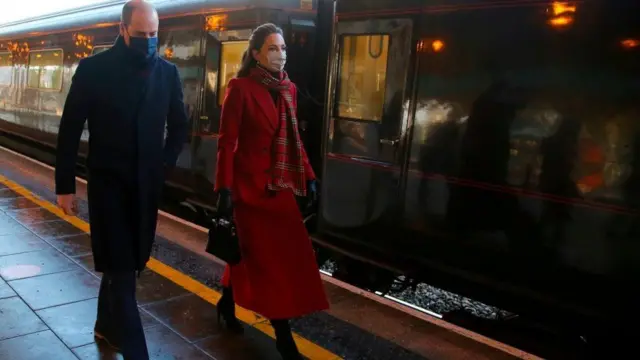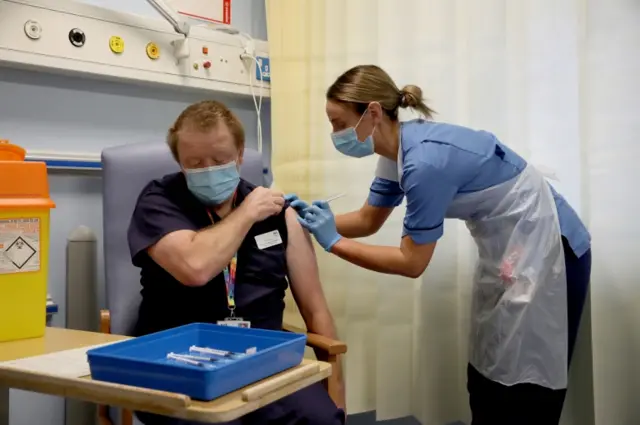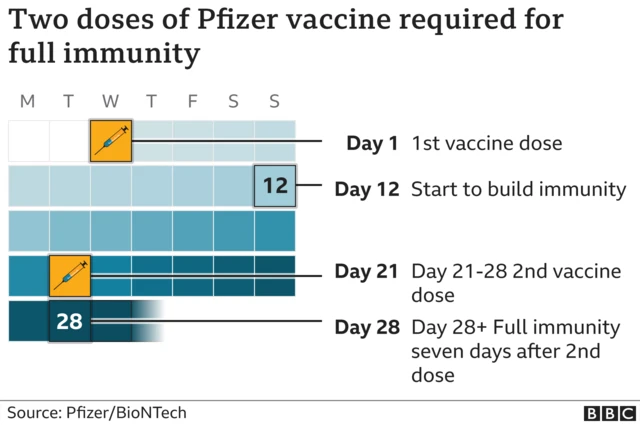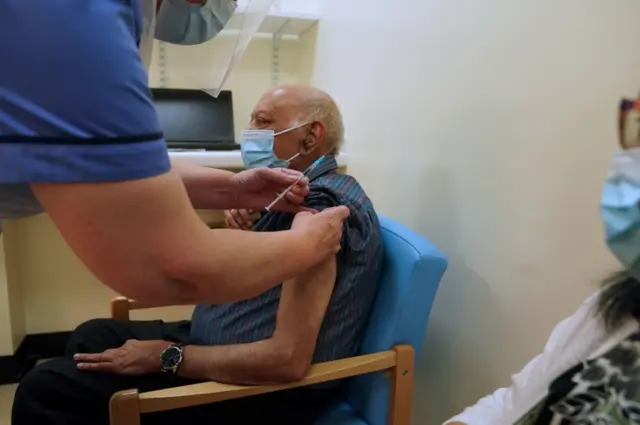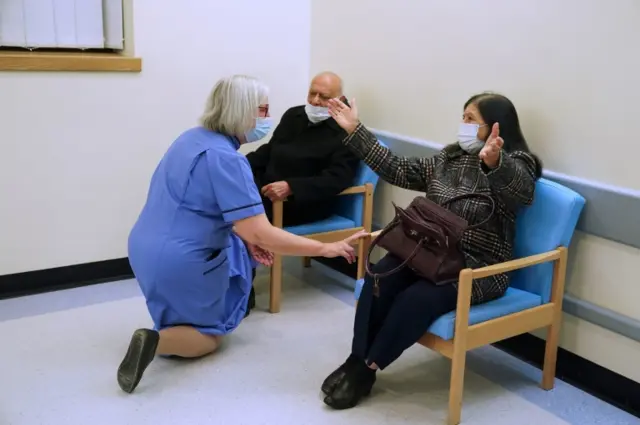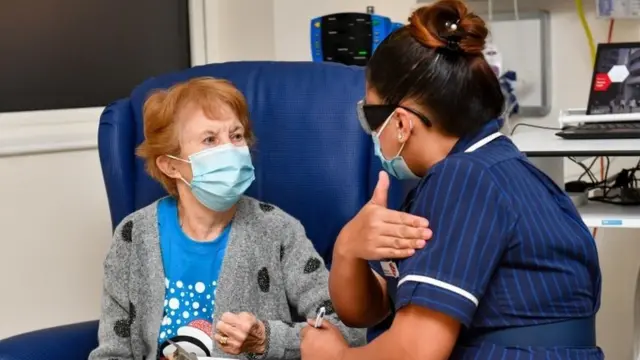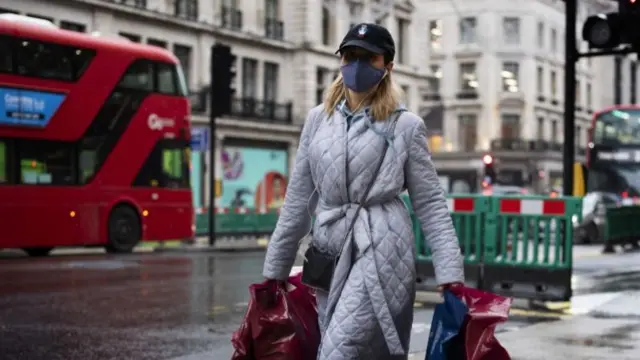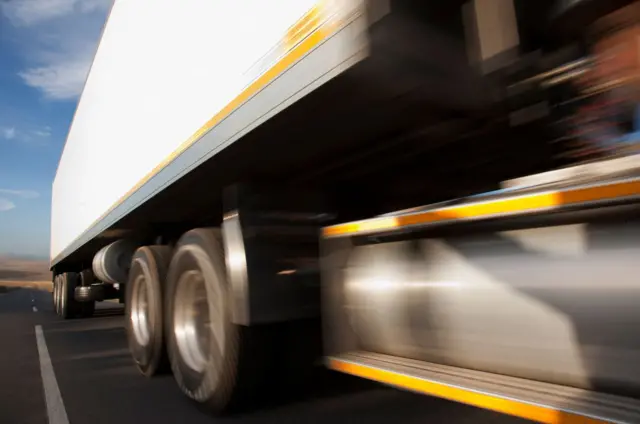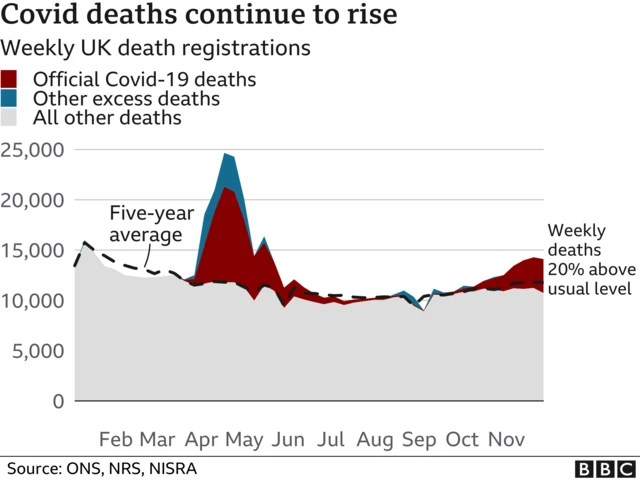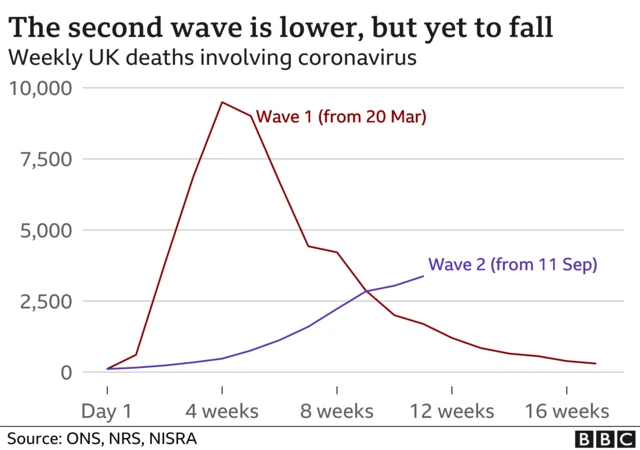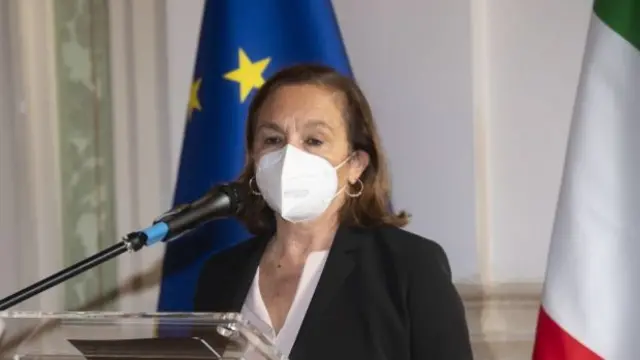Vaccine programme to be expanded to GPs from next weekpublished at 12:54 GMT 8 December 2020
Matt Hancock says the vaccine rollout is a task with "huge logistical challenges", including the need to store the vaccine at -70C temperatures and the need for two doses 21 days apart.
He says he knows the NHS will be equal to the task.
The first 800,000 doses are already here in locations around the UK, Hancock says, and the next consignment is scheduled to arrive next week.
He says this week vaccines are being administered from hospitals, but next week deployment will be expanded to GPs.
And we'll vaccinate in care homes by Christmas.
